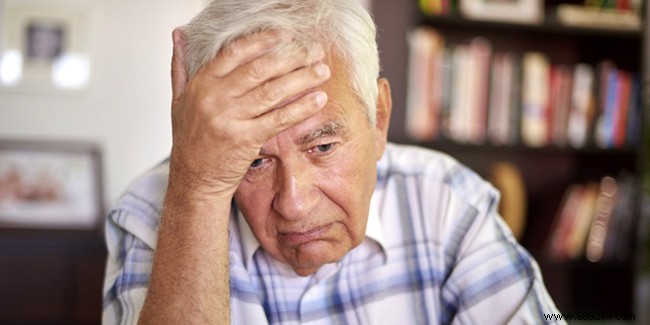
Anyone can suffer from seasonal depression, also called seasonal affective disorder (SAD). But the elderly are even more sensitive to it. We are talking about a drop in morale and energy that occurs at certain times of the year, mainly fall and winter, when natural light is scarce. As its name suggests, seasonal depression is temporary. But to deal with it, there are solutions and it is important to adapt your behavior to quickly regain your enthusiasm and joy of living.
Seasonal depression refers to a malaise observed at certain times of the year, especially during autumn and winter. This type of depression results in low energy, mood swings, fatigue, sadness, hypersomnia, or loss of appetite.
The main cause of seasonal depression is attributed to the lack of natural light, which is less present in seasons when the days are shorter and the sun is rarer during the day. This lack of light in fact acts on our brain by causing an imbalance in the production of certain hormones such as serotonin or melatonin.
Anyone can be affected by seasonal depression, but the elderly are more susceptible to it.
To fight against seasonal depression, a good diet can prove to be a good ally. For example, increasing your intake of unsaturated fatty acids, the omega 3s present in particular in fatty fish (sardines, herring, salmon, mackerel, anchovies, etc.), is generally beneficial for health, but their benefits have also been proven by studies carried out in particular with seniors to deal with seasonal depression.
Omega 3s help to slow down the aging of nerve cells, which makes it easier to fight depression in general, and seasonal depression in particular.
On the other hand, a balanced diet rich in magnesium, which contributes in particular to our good emotional balance and to providing us with energy, is one of the weapons that makes it possible to deal with seasonal depression. To do this, do not hesitate to supplement your food with whole grains, dark chocolate, bananas, green vegetables, mineral water, etc.
Seasonal depression, as its name suggests, affects some people, especially the elderly, the months of the year when the sun is rarer and when the days are getting shorter.
As a result, we are much less exposed to light which, however through vitamin D, is necessary for our development, our energy, but also for our good psychological health.
This is why people who suffer from seasonal depression are recommended to receive additional light through light therapy treatments. This technique consists of exposing the eyes and the skin to light similar to that of the sun, in any case which has the advantages but without the dangers associated with ultraviolet rays.
It is possible to benefit from light therapy sessions (from 30 minutes to 1 hour) in specialized practices, but there are also commercially available light therapy lamps that can be easily used at home, and without risk.
As we have seen, seasonal depression is partly due to the lack of natural light. To cope with this temporary discomfort during the year, there is also nothing like going out as often as possible. One hour of sun exposure a day is enough to meet the needs of our body to get better psychologically.
Having an outdoor activity is therefore strongly recommended for elderly people with seasonal depression. A good opportunity to get (back) into sport, also good for the health of seniors in general! Walking, cycling, golf, etc., are all activities that can be practiced in almost any weather, and accessible to as many people as possible.